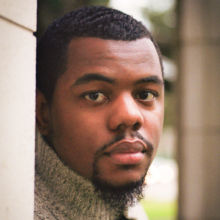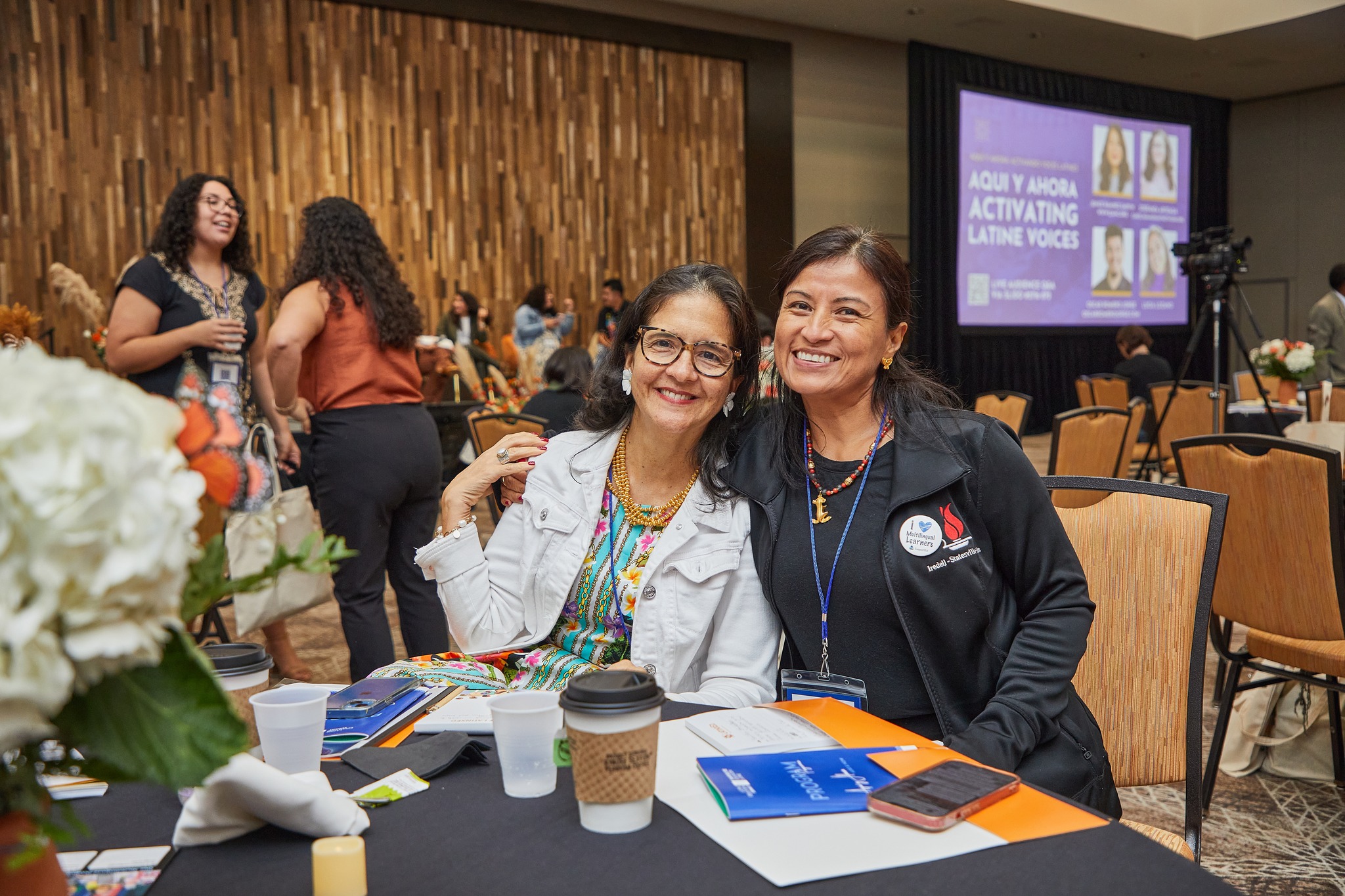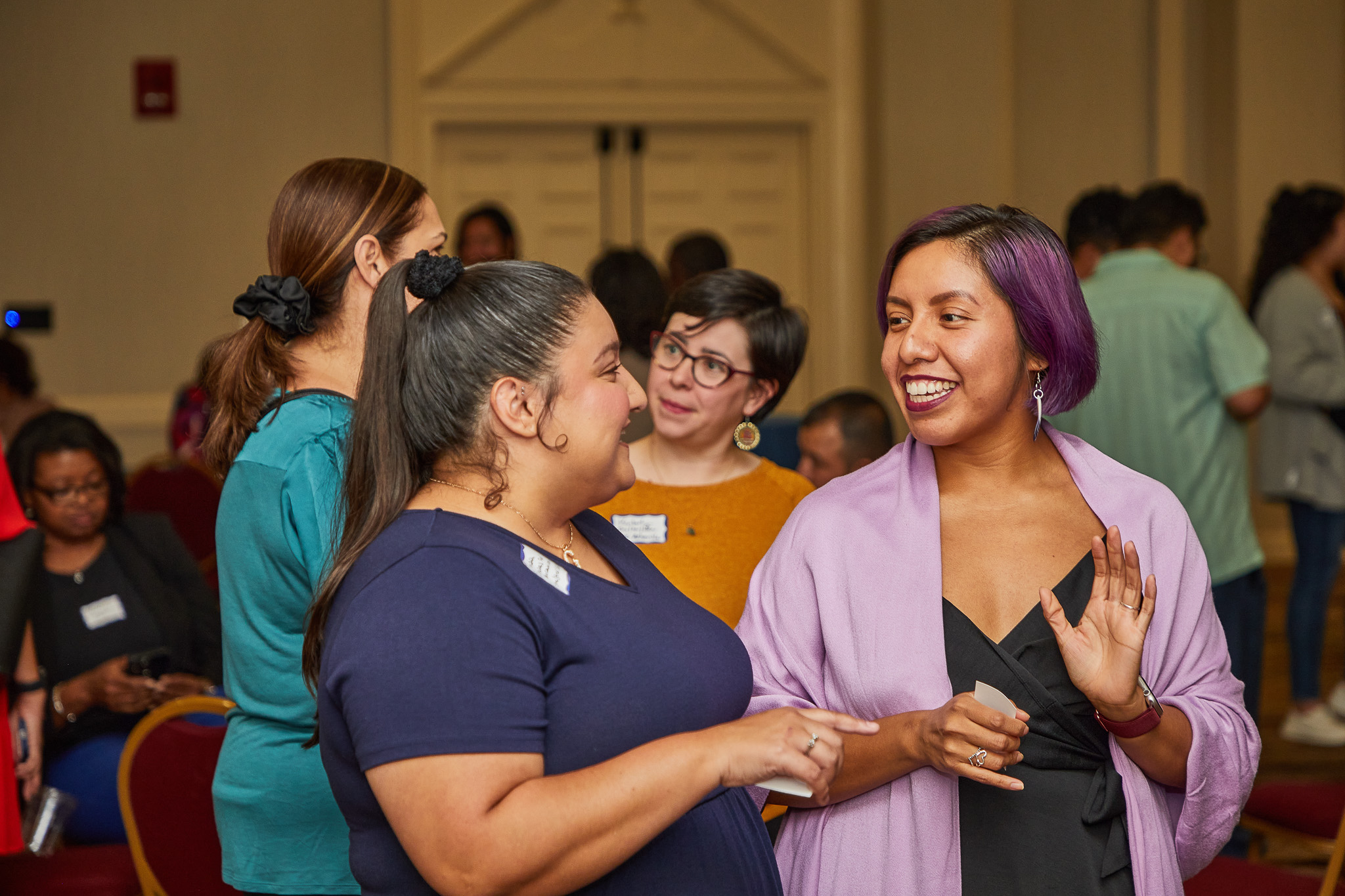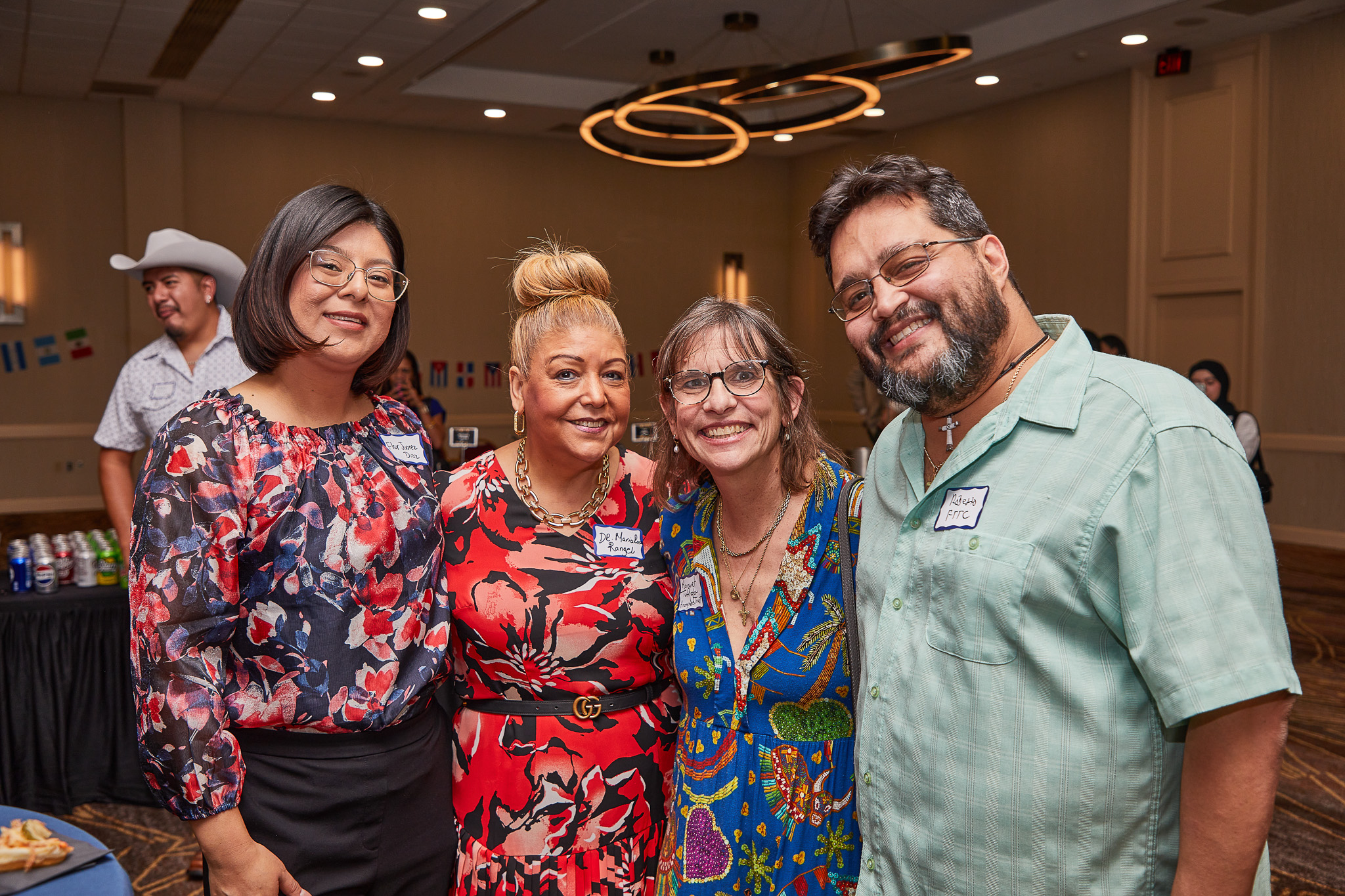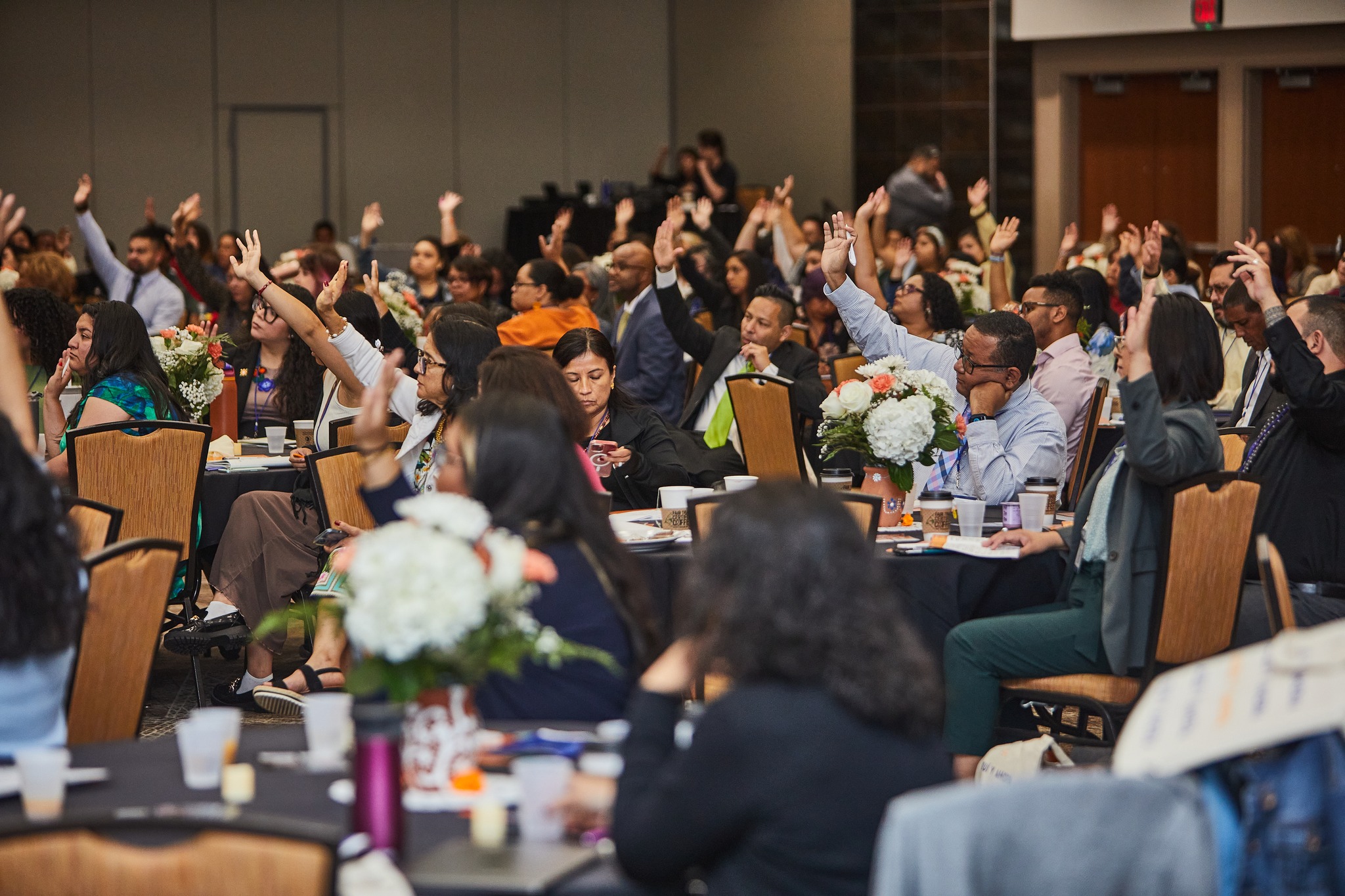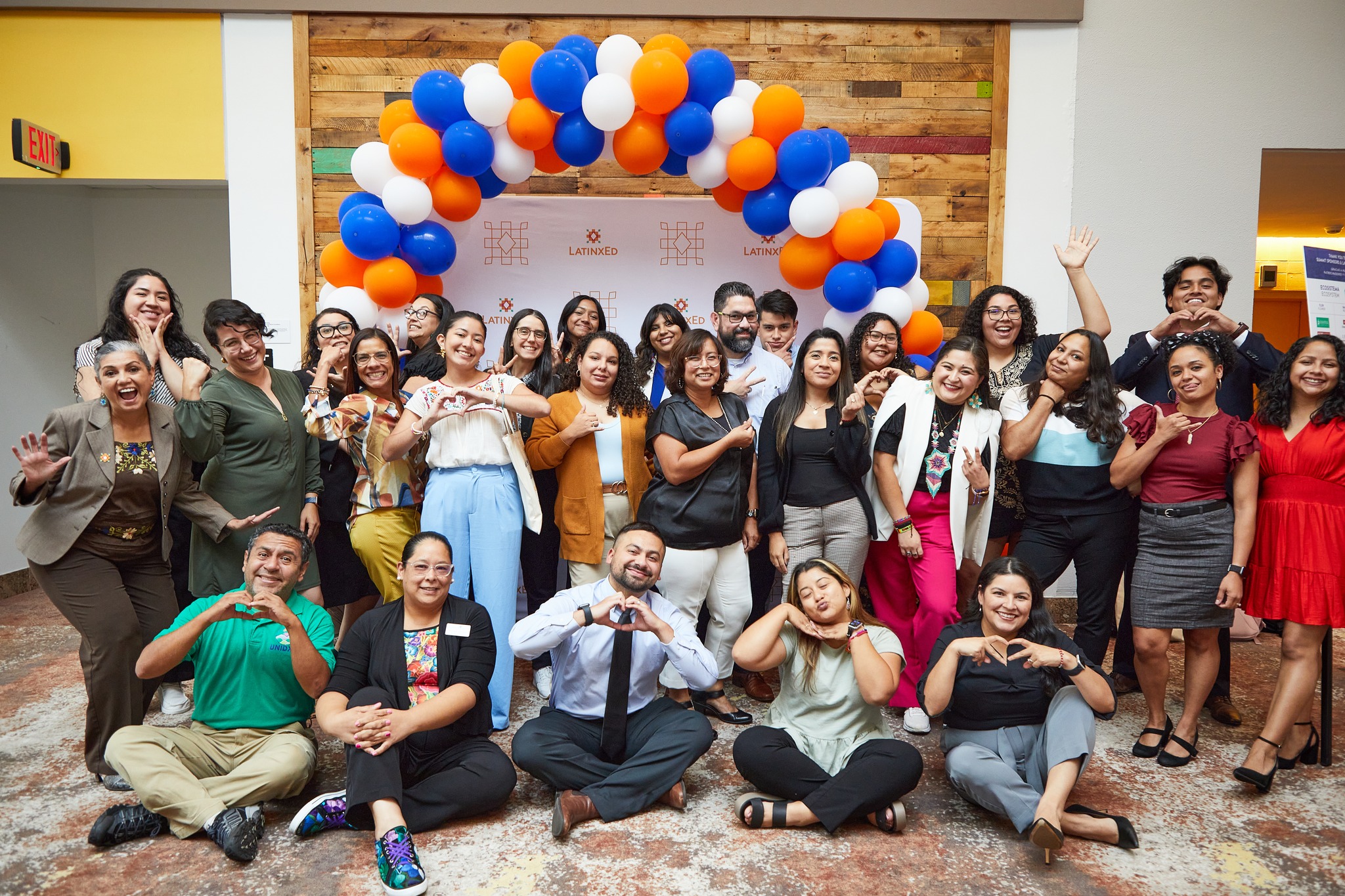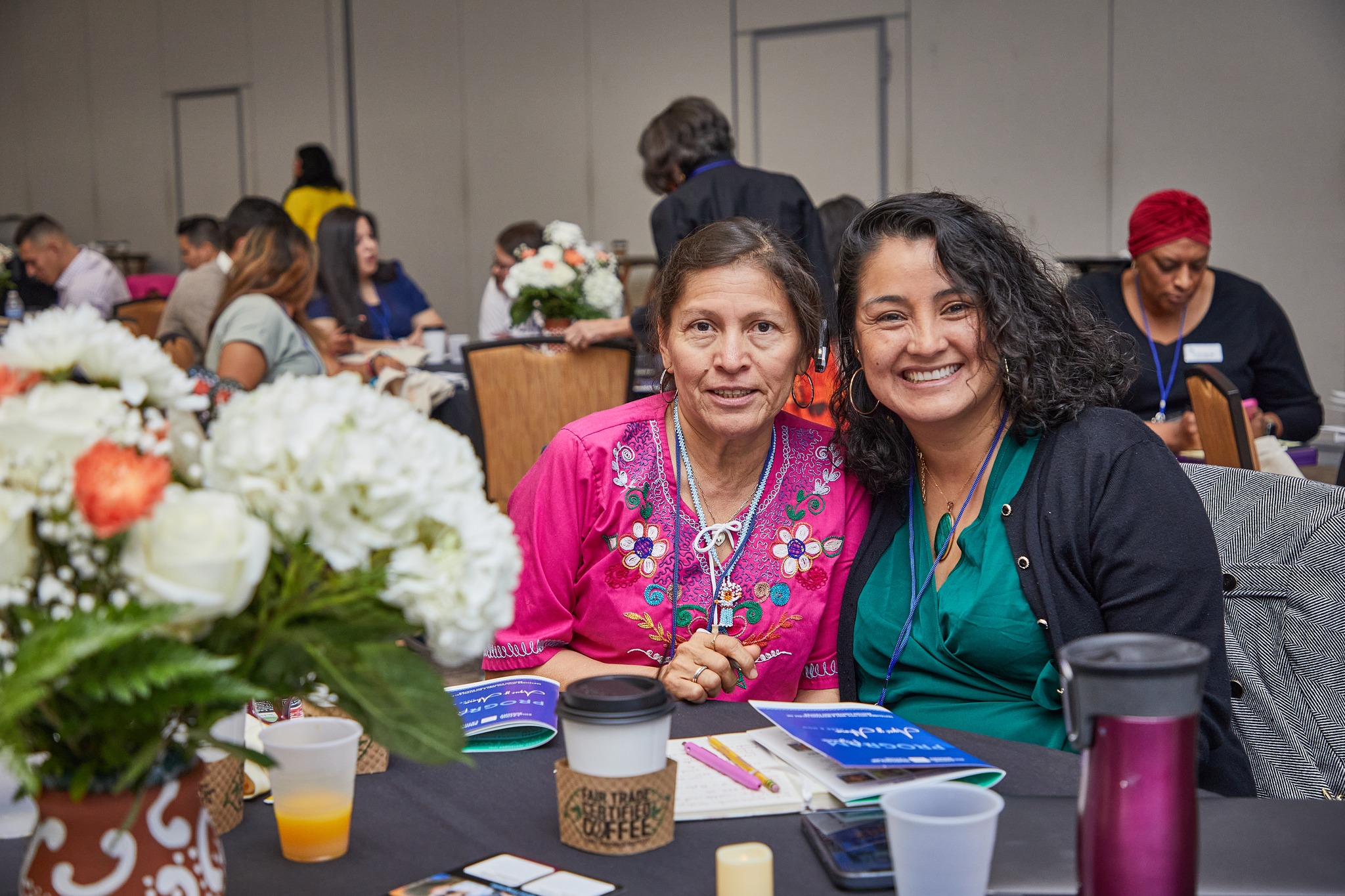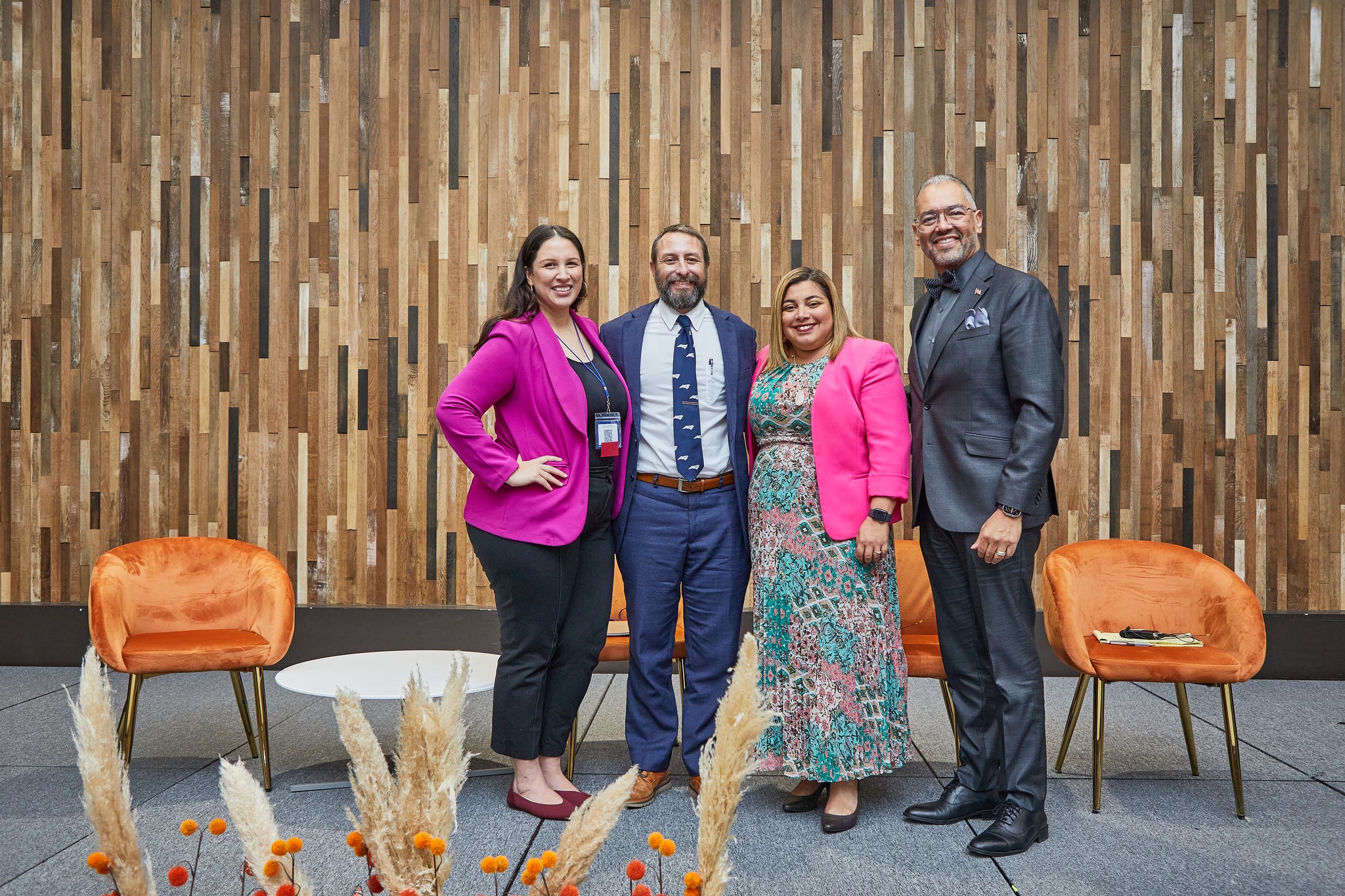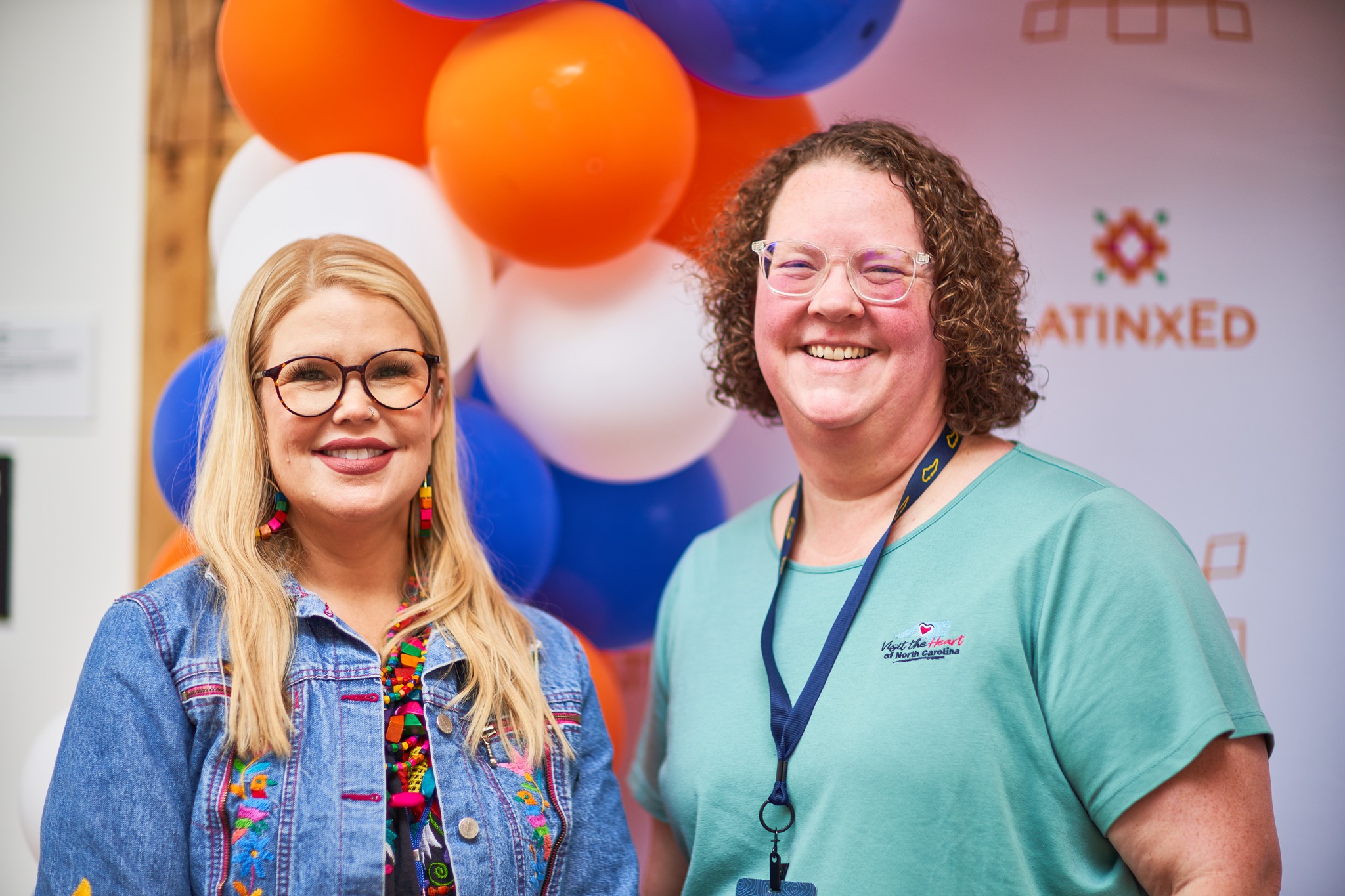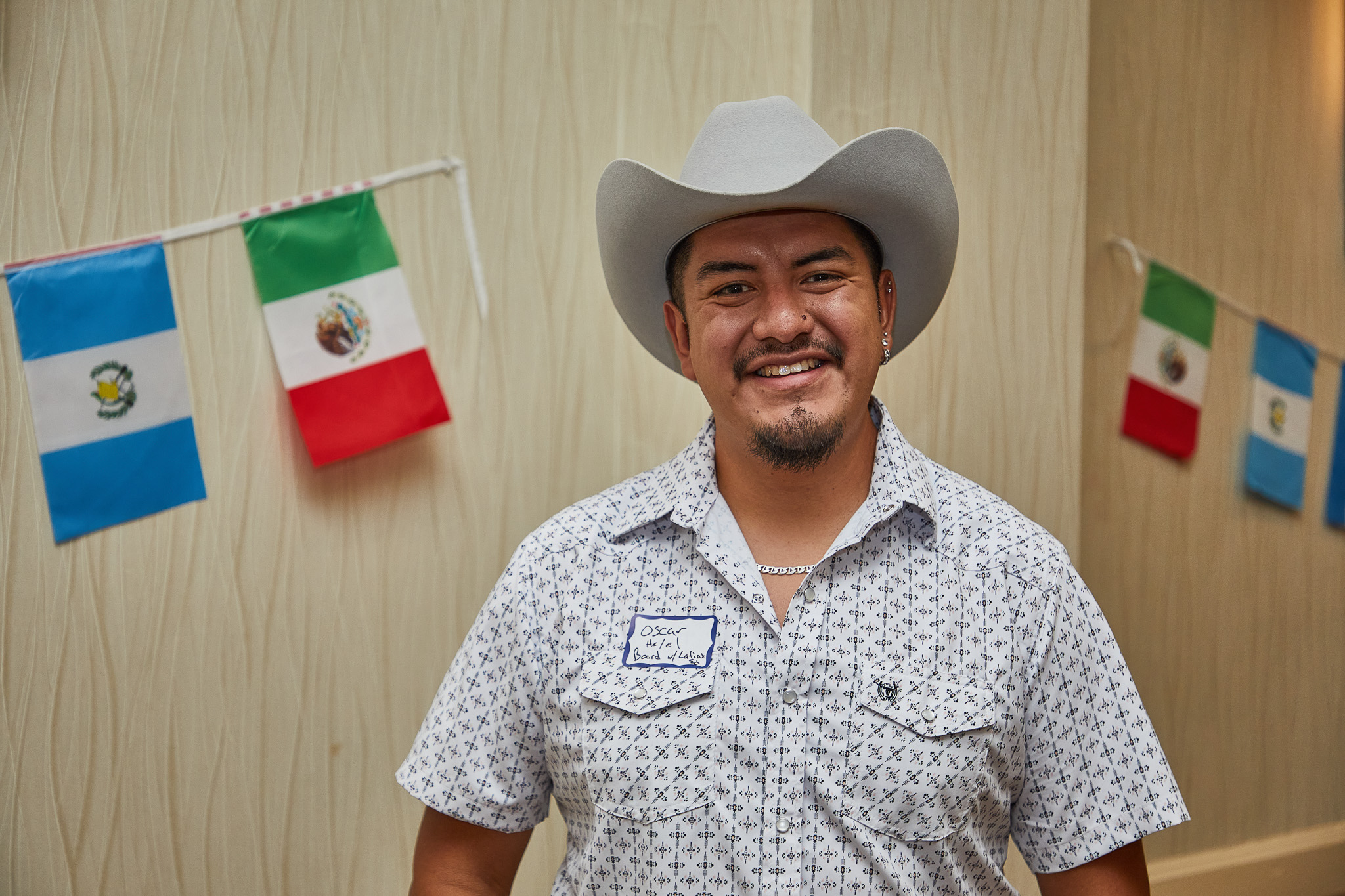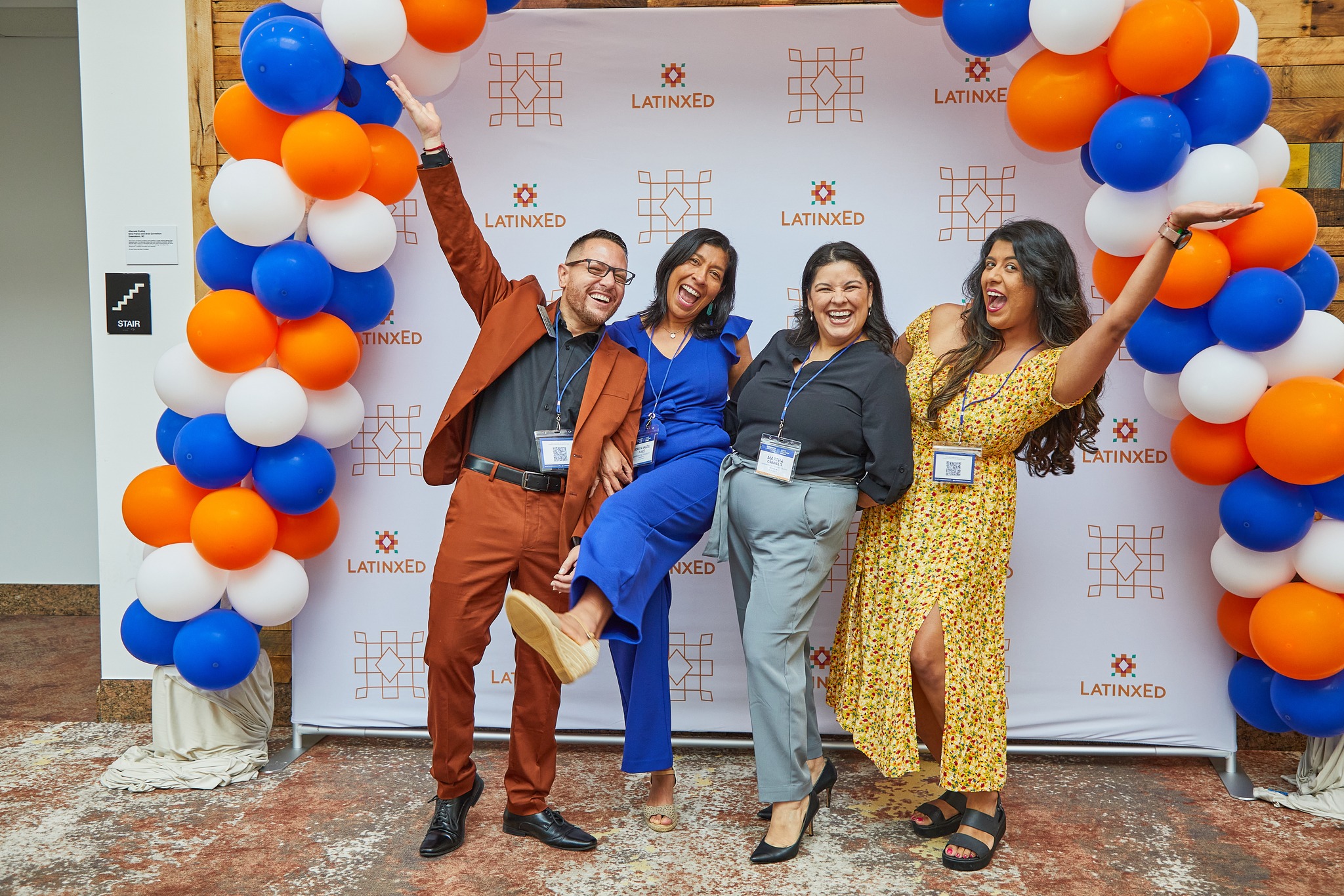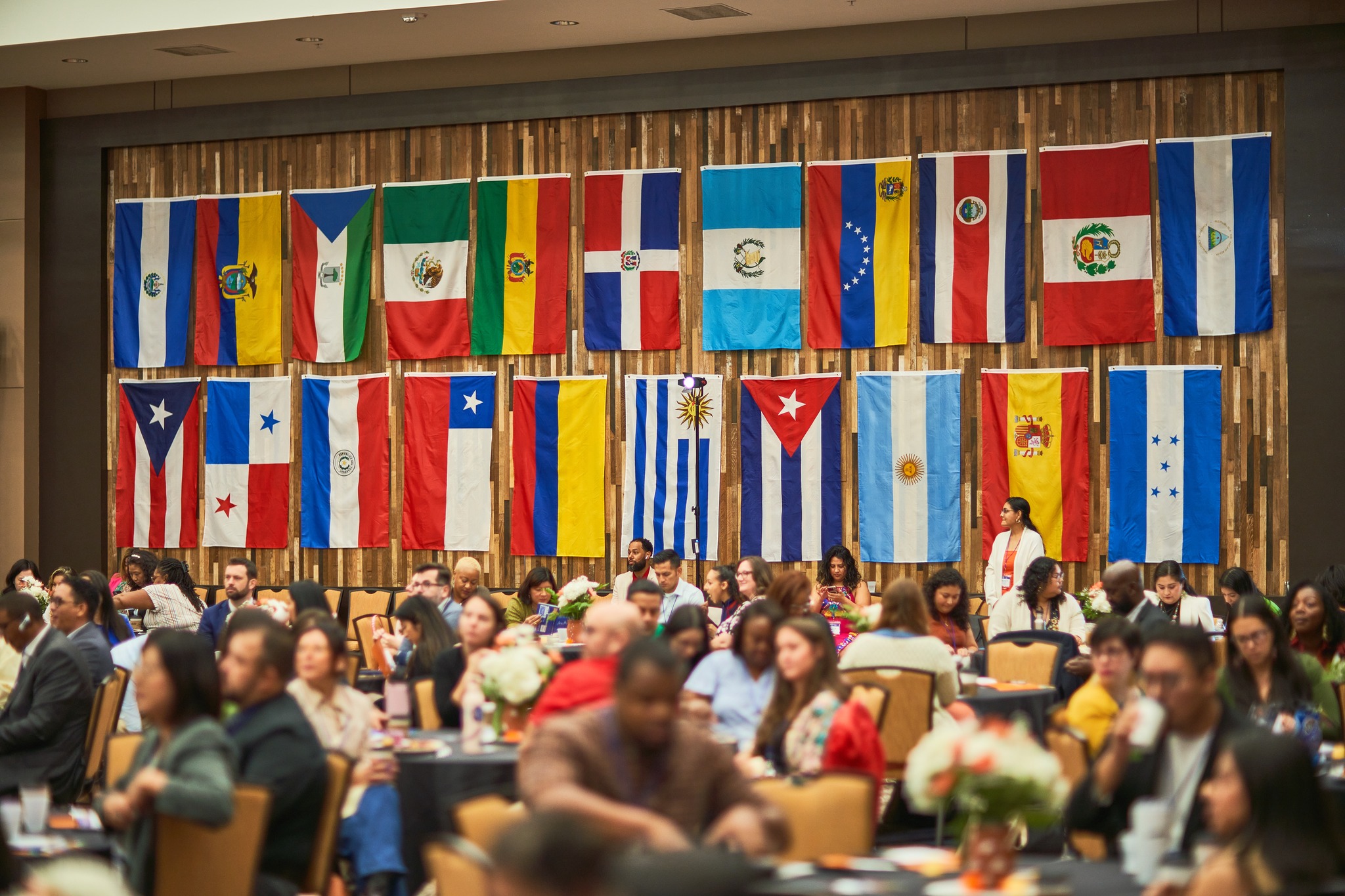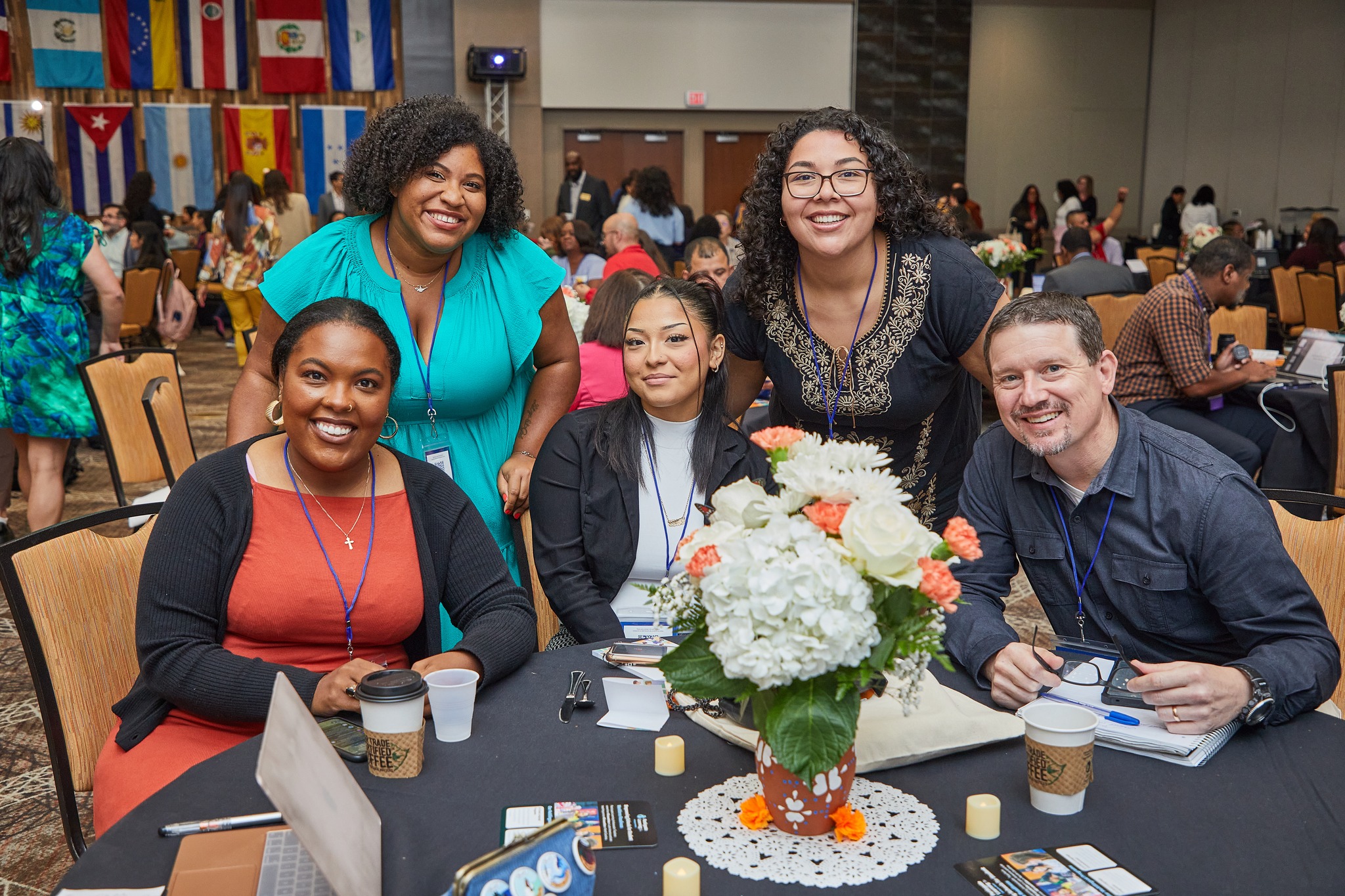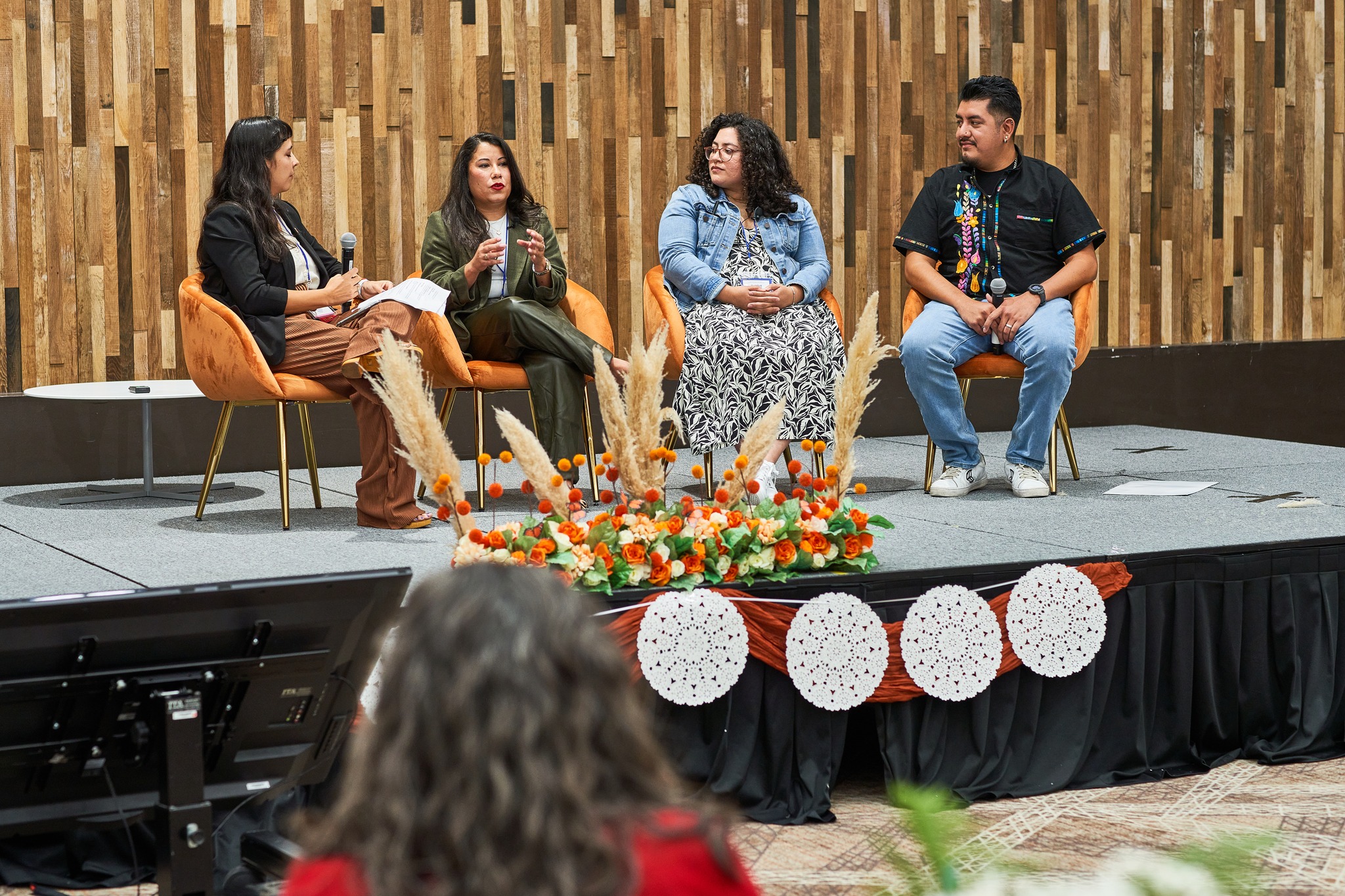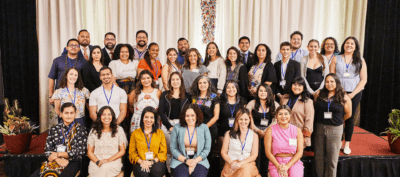
|
|
On Sept. 12-13, LatinxEd gathered over 320 education leaders and stakeholders in Winston-Salem with a focus on community building and strategizing the advance of educational equity for Latine education statewide.
Dr. Roberto Montoya, the associate vice president of partner success for Hispanic Serving Institutions (HSIs) at InsideTrack and one of the speakers at the Latine Education Summit, called upon attendees to think of themselves as artists contributing to an ongoing mural.
Montoya likened North Carolina to a canvas and compared the different skills and contributions of community members to paint brushes.
“Artistic thinking is creative thinking,” he said. “We must use the hues of humanity to paint this mosaic.”
As suggested in the theme of the summit, when it comes to serving and investing in Latine education across North Carolina, the time to think creatively is “aquí y ahora” (here and now).
Alberto Gonzalez is a freelance visual artist with AV Creatives. As the photographer for the summit, he had the responsibility of capturing moments and telling stories through his lens.
Gonzalez stated that the meaning of an artist is “to make art that is felt, that is seen, and that is properly executed.” For photographers specifically, he emphasized the importance of finding the focus point and making sure that it’s the right leading point.
He added that one of the important elements of a camera lens is aperture, which influences depth of field. For Gonzalez, the beautiful aspect of photography that applies to daily life is the ability to modify and elevate perspective.
Adding perspective
Dr. Nathan Dollar, director of Carolina Demography, relayed data to help put things in perspective regarding the need to focus on North Carolina’s fastest growing population.
Dollar shared that around 1990, there were 66,000 Latine residents in North Carolina. Present day, that figure has grown to 1.1 million, around 11% of the state’s total population. Dollar added that the Latine population is projected to reach over 1.6 million by 2035.
LatinxEd’s co-founder and executive director Elaine Townsend-Utin shared that 280,766 Latine students were enrolled in North Carolina public schools in the 2023-24 academic year.
While Charlotte-Mecklenburg, Wake, and Winston-Salem/Forsyth are among districts with the highest total number of Latine students in the state, she said, Asheboro, Duplin, and Sampson are among the districts with the highest percentage of Latine students.
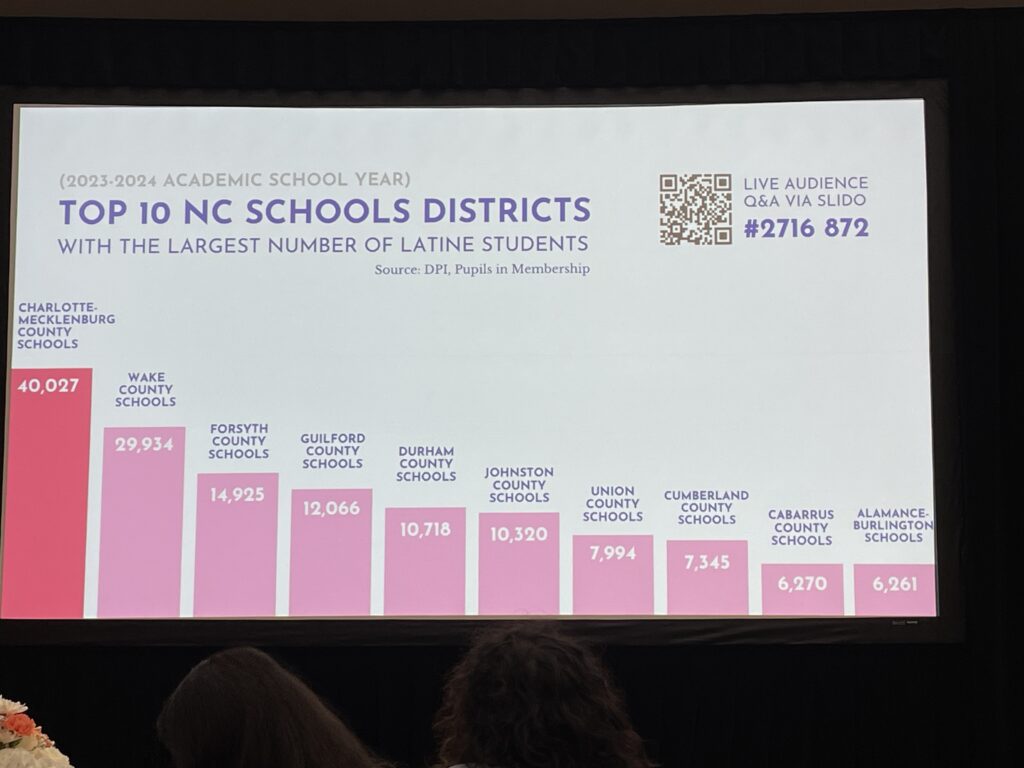

Utin directed attention to figures that indicated disparities in representation of Latine leadership, particularly in proportion to the make up of the student population.
For instance, while Latine students make up 21% of students in North Carolina public schools, she said there are currently no Latine superintendents, less than 1% of school board members are Latine, and only approximately 4% of teachers and principals are Latine.
Utin also highlighted the rise of Hispanic-serving institutions (HSI) in North Carolina. James Sprunt, Montgomery, and Sampson community colleges are classified as HSIs due to their Latine students making up over 25% of their undergraduate, full-time degree seeking student enrollment. Meanwhile, there are 19 other institutions that are considered emerging HSIs, with 18 of these community colleges.
The figures mentioned above helped shape the conversation regarding the “State of Latine Education,” which featured a panel consisting of Utin; Dollar; Jusmar Maness, the chief academic officer at Guilford County Schools; and Dr. Abraham Dones, the vice president and chief student services officer at Durham Technical Community College.
Maness spoke about creating “spaces where our students know that their language is an asset,” rather than a deficit. Dones mentioned the need to focus on hiring practices and acquiring professionals with adequate skills and cultural competency to support students. With North Carolina’s growing Latine population, the panelists called for a more intentional focus on systems and resources that serve the needs of this community.
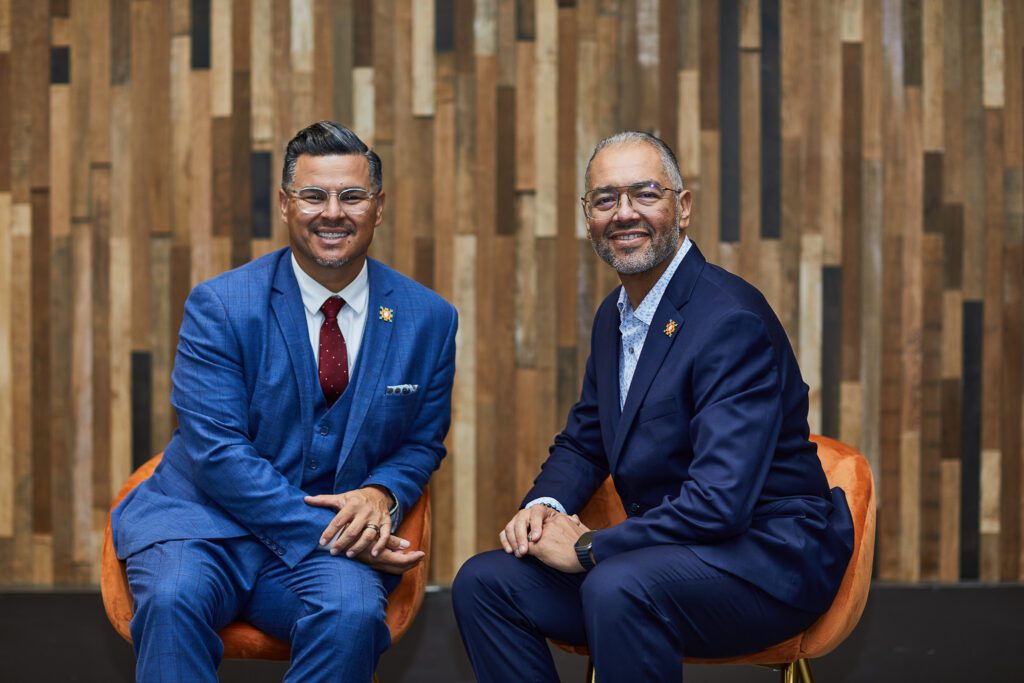
The mosaic of LatinxEd’s work and community
For Amanda Aguayo, visual arts teacher in Orange County Schools, participating in the LatinxEd Fellowship reacquainted her with her love of painting.
Fellows were challenged with creating a project that represented both the obstacles they have overcome in their leadership journey and the future they envision.
“Not only are they building us up to be great leaders for students, but they’re also building us up to appreciate what our culture has to offer,” said Xavier Adams, 2022 Prudential NC Beginning Teacher of the Year and 2024 LatinxEd Fellow. “As much of a professional network that the fellowship creates, it also creates a family network as well, where people feel comfortable reaching out and feel comfortable sharing their full selves. So, for that, I’m incredibly grateful.”
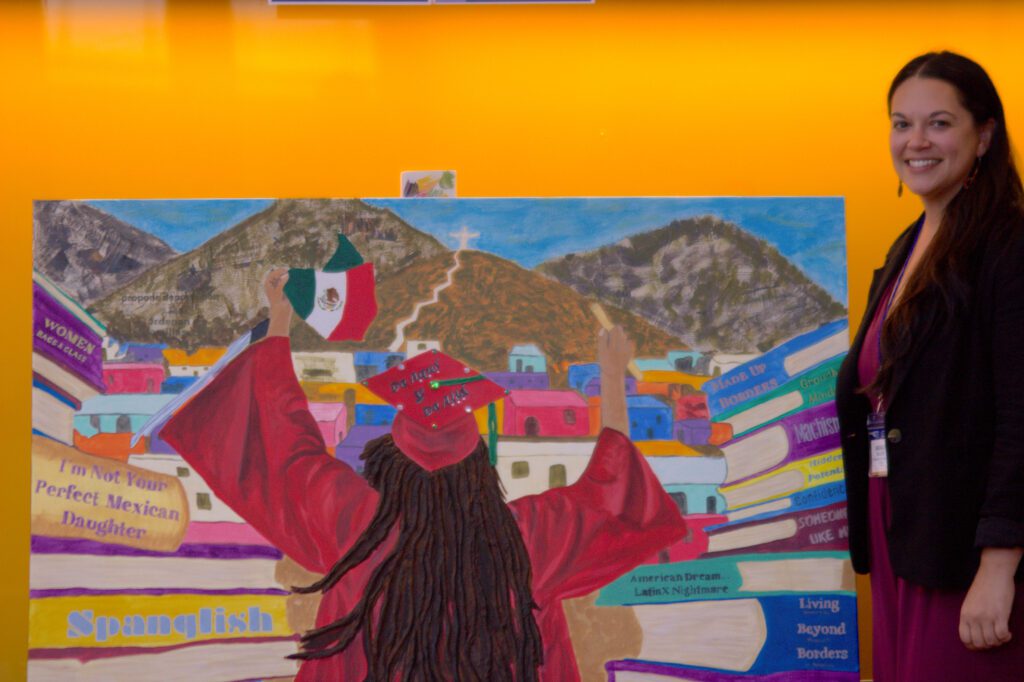
Aguayo produced the painting featured above. The center focus is a Latina graduate facing a border wall of books and and mountains symbolizing her father’s home country. The graduate’s cap reads, “De aquí y de allá,” which represents belonging in the United States but also having a strong connection to her cultural roots in Mexico. She also includes imagery around mental health issues within Hispanic culture.
“She’s not done yet,” Aguayo stated. “She’s going to keep going. She’s going to keep overcoming those mountains, overcoming the books, the mounds of books that she’s read through that have influenced her in one way or another.”
While the art piece is based on Aguayo’s life, she said that part of it represents her growth and healing journey of believing in herself. She credits the LatinxEd Fellowship with reaffirming her leadership potential.
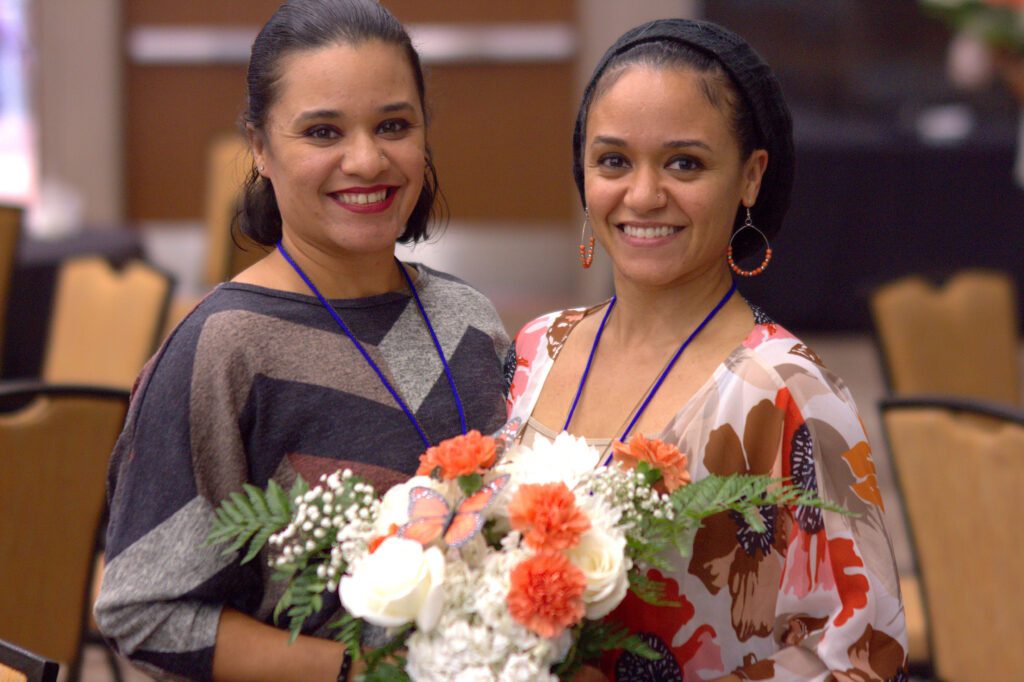

The fellowship is only one part of LatinxEd’s work. In 2018, co-founders Elaine Townsend-Utin and Ricky Hurtado set out to create an educational nonprofit that would invest in Latine leadership and expand educational equity and opportunity in North Carolina.
According to their website, through initiatives such as “College y Consejos,” LatinxEd focuses on providing culturally relevant resources for Latine families and students pursuing postsecondary education in addition to training and resources for educators.
In recent years, they have released two reports: #SomosNC and Nuestra Esperanza.
“I don’t have spaces like that, as a woman of color, as a Latina, where I can be myself fully. To see other people, just like, clothed in their cultural garments and just be so proudly themselves and represent their background like that was just beautiful.”
Estefane Santiago-Lopez, college access and success manager for GEAR UP NC with the UNC system

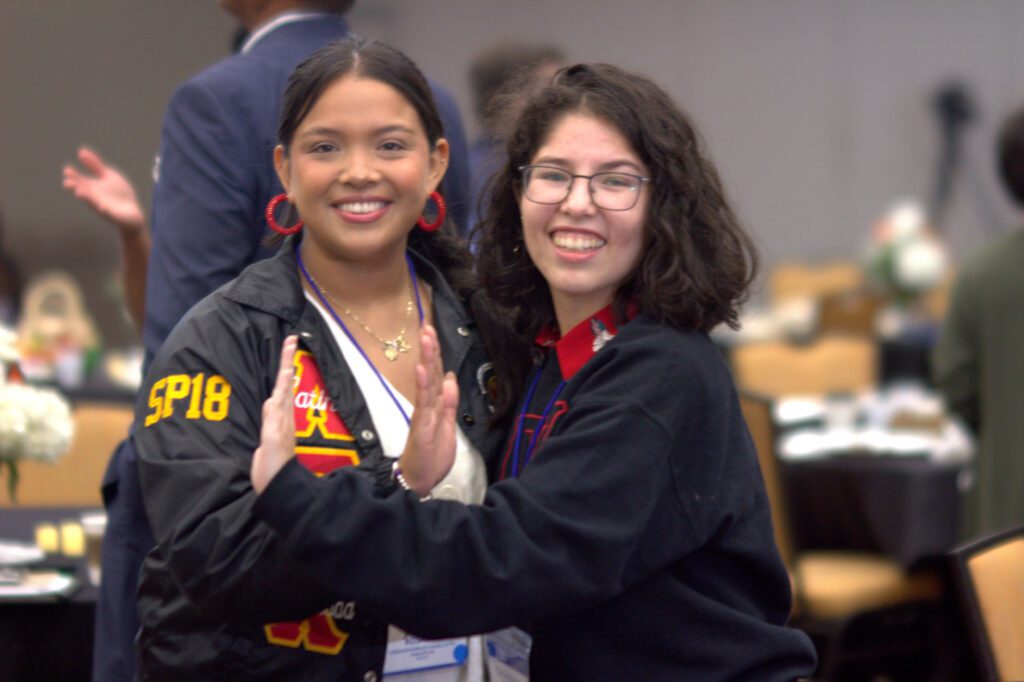
Lastly, LatinxEd’s annual summit offers the opportunity for education leaders and stakeholders to network, plan, and celebrate.
Aguayo described the summit as a mosaic, defining it as a bigger picture that is made up of individual pieces. She said the experience allows for a sense of community where participants can see, hear, and understand what each individual person is doing to better the Latine community. Additionally, Aguayo said it enables attendees to support each other while bouncing ideas off each other to create a stronger community within North Carolina.
“To be in a room of other Latine leaders, folks in higher ed, folks in K-12, who are not only relating to you but listening to you and just providing you support — it’s so important to just allow you to continue to not let that flame burn out.”
Brenda Valdez, assistant director of admissions at Appalachian State University
Creating space for stories, conversation, and community
As a welcome to the summit, LatinxEd Fellows and “Semillas Storytellers” Mayra Robles, Josue Cordova, and Kassandra Ciriza-Monreal each shared a poem with the audience. Read Cordova’s “Yo Soy” poem below:
The two-day event also featured various panel discussions and presentations focused on K-12 education, postsecondary education, policy, advocacy, and more. Some of the topics included activating Latine voices, diversifying education policy leaders, fostering inclusivity and culture with dual language programs, and empowering Latine families.
Notably, the summit was the first time the candidates for state Superintendent of Public Instruction Michele Morrow (R) and Mo Green (D), engaged in an in-person discussion ahead of the 2024 election. The conversation was moderated by Xavier Adams, 2022 Prudential NC Beginning Teacher of the Year and 2024 LatinxEd Fellow.
The first night of the summit ended with a fiesta where LatinxEd gave the following awards to leaders within their community:
- Dr. Sharon Contreras, “From Dreams to Action” award recipient
- Dr. JuanEs Ramirez, “More Leaders, More Graduates” award recipient
- Carlos Sacerio, “Aquí y Ahora” award recipient
- Silvia Martin del Campo Vargas, “In Lak’ech” award recipient
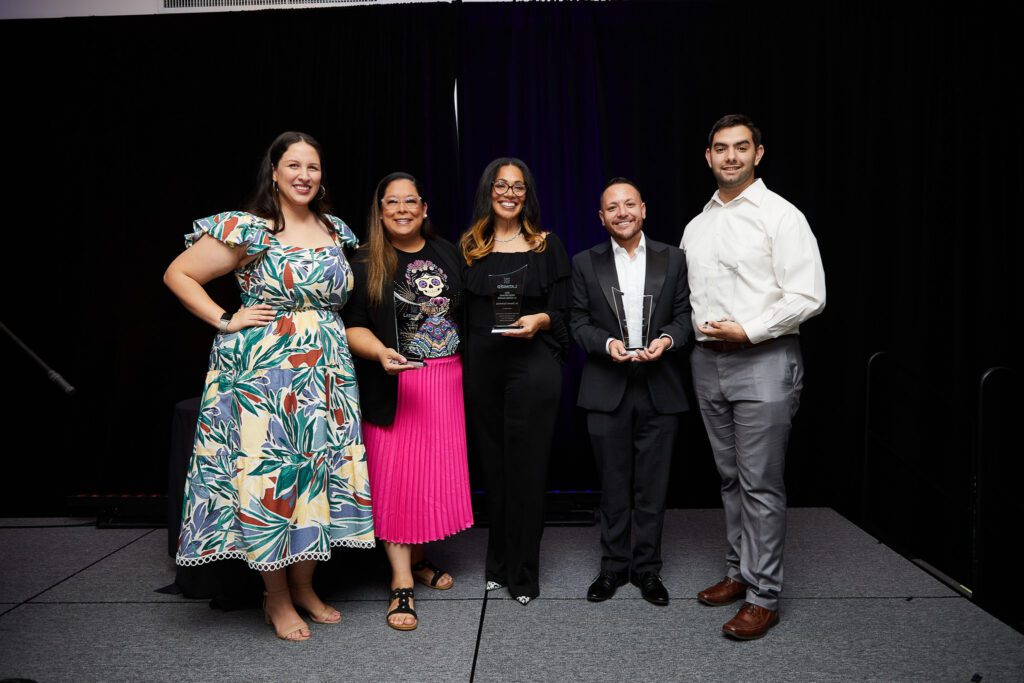
Crafting a future together
Robi Arce-Martínez is an assistant professor of movement and acting at UNC-Greensboro‘s School of Theater. In his work as a multi-discipline artist, he said he believes in the power of collective creation. This entails working with others across art mediums and building from the ground up, rather than depending solely on art that others have already created.

The first assignment that Arce-Martínez gives students in his class is to freely create an autobiographical performance of themselves. He shared that because “we are conditioned to work in a very square way,” he has found that many students often struggle with the assignment, searching for more specific parameters. In response, he pushes his students to view the task as a blank canvas.
“It’s your story,” he tells them. “You know it better than I. So, go ahead and fly.”
This approach aligned with the closing small groups for the Latine Education Summit. Attendees were organized into casas (houses), each named after one of LatinxEd’s five core values. Together, they co-designed a vision of what “servingness” means for our Latine communities. Similar to Arce-Martínez’s blank canvas, groups were asked to “freedom dream,” or envision a future for Latine education without limitations or barriers.
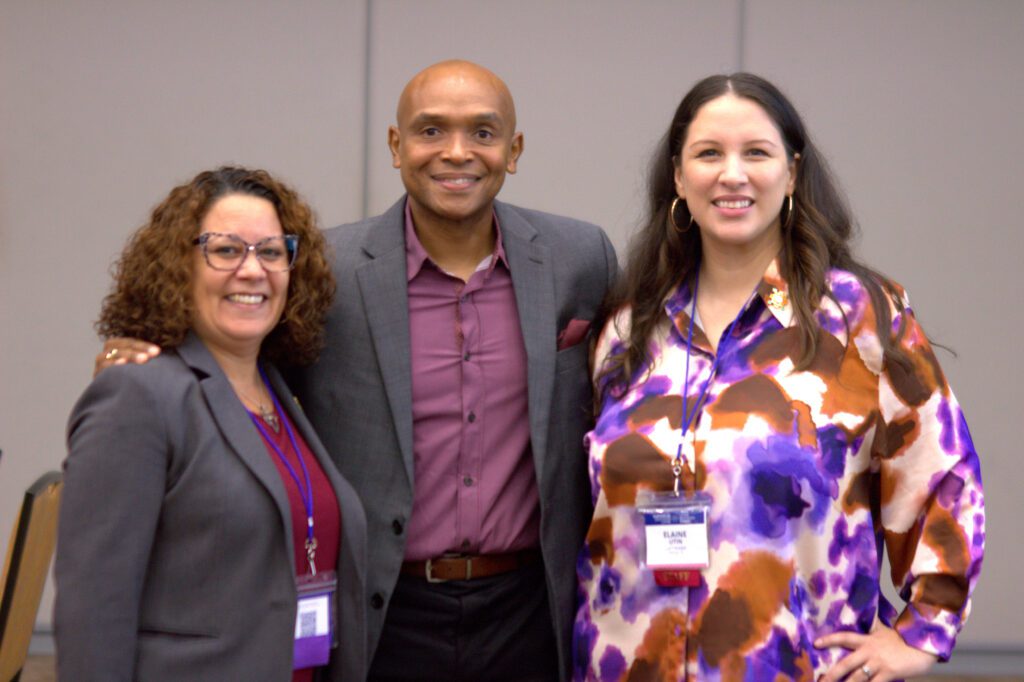


“When it comes to the urgency of Latinx education issues,” Utin said, “it’s time for us to come together and ideate and create new opportunities, new ways of doing, new ways of thinking.”
Understanding that creating alone can be an isolating experience, she considers the summit an opportunity to bring artistic geniuses together.
“When you’re in rooms with other artists, other creatives, all of a sudden the synergy sparks, the ideas are flowing, and ultimately, there’s hope in our craft for what we can do,” she said.
For Utin, the creativity, innovation, and change is largely contingent on building relationships. In an election year where she feels much is at stake, Utin said it’s important to “really connect the dots on critical issues, activate our community to vote and show up at the polls, in the classroom, on pathways towards postsecondary success.”
